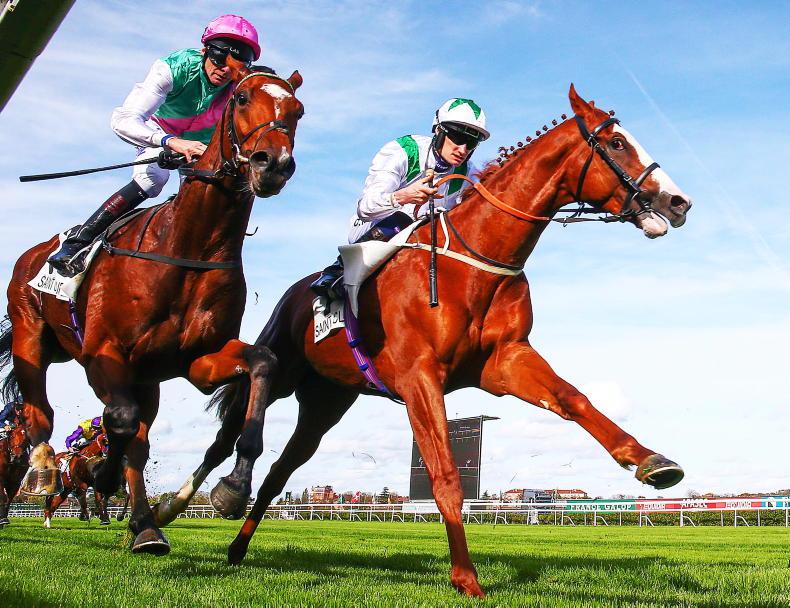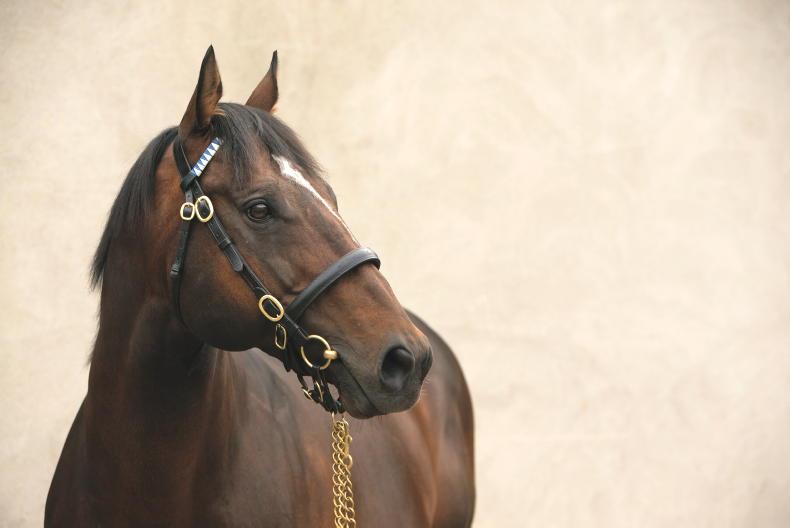Mark Johnston celebrated the 5,000th victory of his career in Britain when Dubai Mile scored in impressive fashion at Kempton Park.
Sent off the 6/5 favourite, the Daniel Muscutt-ridden Dubai Mile – a son of Roaring Lion – was quickly to the fore in the British Stallion Studs EBF Restricted Novice Stakes and while Super Mo was a brief threat, the market leader really strode on through the final furlong to win in style.
Johnston, based at Middleham in North Yorkshire, was responsible for 4,874 winners under his own name and now shares the licence with his son, Charlie.
Born in Glasgow in October 1959, Johnston – Britain’s mopst-winning trainer – began his career in Lincolnshire, where he set up his first yard with his wife and assistant, Deirdre.
He took out a licence for the first time in 1987 and sent out his first winner, Hinari Video, that year. The following year he moved to Kingsley House in Middleham and his operation has continued to grow ever since.
He became the first Flat trainer to record over 200 winners in a season (2009), a feat he has repeated every year since, bar 2011, 2016 and 2020, with the latter heavily restricted due to Covid-19.
The qualified vet has won the 1000 Guineas with Attraction (2004), the 2000 Guineas with Mister Baileys (1994) and has shown a great affinity with stayers – winning the Gold Cup at Ascot four times through Royal Rebel (twice), the hugely-popular Double Trigger and most recently Subjectivist (2021).
He was also responsible for the brilliant Shamardal in his juvenile season, winning the Dewhurst Stakes in 2004.
Numerically his best year came in 2019 when he trained 249 winners, and in 2018 Frankie Dettori partnered his record-breaking 4,194th winner at York, bettering the mark set by Richard Hannon senior.
“It’s obviously a bit different from breaking the record in 2018, you could say no one has reached 4,194 winners (the previous record) so it’s not as if I’m breaking new ground, it’s just another landmark and setting the bar higher for people to try to reach,” Johnston told Great British Racing.
“The main thing is the whole business revolves around winners and a lot of winners means a lot of happy owners. Hopefully we can continue doing the same thing.”
On being the joint-licence holder, he said: “There are disagreements, as there would be with anyone working with another family member!
“However, it’s certainly lifted a lot of the load from me and the most important thing is he’s now getting credit for something that he’s been doing for quite some time in the business. That’s certainly part of the plan that he will take over at some stage in the relatively near future.
“We don’t know when that will be!”
Looking back on the best he has trained so far, he said: “Shamardal was the best. Every day I say the most important thing about racing your horses is the opposition.
“People look at the going, track, distance, jockey and so on but the number one thing is the opposition. But absolutely throughout the time I trained Shamardal, I never considered the opposition because when you’ve got a horse like him the opposition’s of no concern.
“All you are concerned about is can I produce him at his best – because if he’s at his best nothing can beat him.
“I suppose the dream is to find another one. When I had Attraction I thought I’d never have a horse as good again, but when she was a three-year-old Shamardal was already in the yard. I’ve had great horses since but nothing like him – something that is simply better than all the rest.
“Attraction would be the horse I’m far and away the most proud of because she had conformational issues and soundness issues as a result. In spite of that, she won five Group 1s. That was mostly down to her genes and her desire to run, but some of it was down to training.
“We took the chances and we did the right things with her. And so she would be the horse I remember best and had most affection for.
“I think I said at the time I’d put Subjectivist in the top three racehorses that I have ever trained and I’d stand by that.
“That was based on the fact that when I made that statement he’d won the Ascot Gold Cup, he was basically the best horse in the world over two miles and above and in taking him to the races at that point, I didn’t fear anything other than Subjectivist not being at his best.
“I felt if he was at his best, he would win. I’ve only ever had that attitude with two other horses before, who were Shamardal and Attraction.”


 This is a subscriber-only article
This is a subscriber-only article
 It looks like you're browsing in private mode
It looks like you're browsing in private mode










SHARING OPTIONS: